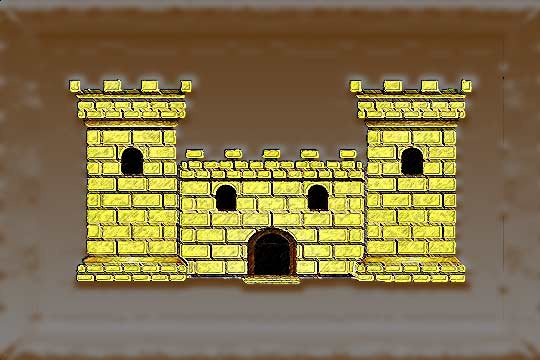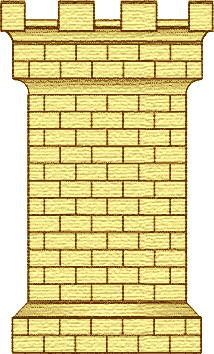Stypsi, Dytiki Lesbos, Lesbos,North Aegean
Kastreli of Stypsi
| Location: |
| On a rocky hill 2 km west of the village Stypsi in Lesbos island, above the road to Kalloni |
| Region > Prefecture: |  |
| North Aegean Lesbos | |
| Municipality > Town: | |
| City of Dytiki Lesbos • Stypsi | |
| Altitude: | |
|
Elevation ≈ 310 m (Relative Height≈50 m) |
| Time of Construction | Origin | |
| Middle Byzantine period | BYZANTINE |
|
| Castle Type | Condition | |
| Castle Ruins |
In Ruins
|
Ruins of a small medieval castle on a steep rocky hill called “Kastrelli” or “Korfi”. The rock (overgrown with oaks) is located on the country road, just before the fork leading to Petra or Kalloni.
History
The fortification is medieval, but of undetermined chronology, presenting similarities with other undated and ruined castles in the interior of Lesvos, such as Agiasos, Chalandrokastro (which is built on a rock of similar morphology), etc. These fortifications, for which there are no reports from historical sources, seem to have been originally built in the mid-Byzantine period, probably of the Dark Ages (between the 7th and 9th centuries), when Saracens and other pirates plundered the Aegean, but continued to be used at least until the Genoese period of the Gatelouzi (1355-1462), since in some of them, such as Agiasos, the Genoese additions are obvious.
So is the Castelli of Stypsi: without knowing anything about its history with certainty, we assume that it was built somewhere between the 7th and 10th centuries and continued to be used probably for several centuries. It is not excluded, however, that it was built much later, e.g. in the 14th century.
The purpose of the castle at this point was the surveillance of the fertile plain of Petra, and the protection of the passages to the interior of the island and to the mines of precious alum.
The small size of the fortification shows that it was probably never a settlement, but a simple military fort manned by a small guard.
Structure, Fortification & Buildings
The castle occupies a small plateau on the axis east to west. There should be no walls on all sides as the morphology of the soil provided adequate natural protection.
A half-ruined tower on the north side survives from the fortification. Only the northeastern side of the tower is preserved at a height of 2 meters, while the foundations are visible from the other sides. It is made of small raw stones and mortar, lined with semi-processed stone. There is a part of the wall visible on the east side while on the west side, near the rock, there is a rectangular tank (cistern), about 10 meters long.
The place is not accessible today, as there is fencing at the access points. There are also signs prohibiting photography. Apparently, there is a modern military installation on the plateau of the old castle.
| First entry in Kastrologos: | October 2021 |
Sources
- Article and photos by Makis Axiotis in the web site emprosnet - Τα Κάστρα της Λέσβου μετά την Άλωση του 1462 Ε, 12/8/2021
- ΑΡΧΑΙΟΛΟΓΙΚΟΝ ΔΕΛΤΙΟΝ τεύχος 20–Β3 / 1965, σελ.495
|
|
| Access |
|---|
| Entrance: |
| Access is not allowed |
| Other castles around |
|---|
| Castle of Agiasos |
| Palaiokastro of Kalloni |
| Tower of Lisvorio |
| Castle of Mithymna |
| Ovriokastro |
| Tower of Parakoila |
| Chalandrokastro |











